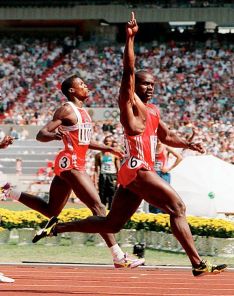Identifying Low Testosterone in Men
Author: Brian Hildebrandt, Last Updated: March 16, 2018
Treating low testosterone appears to be a rapidly growing field in the medical community as of late.
With the ageing baby boomer population, more men are looking for ways to increase their quality of life; and understandable so!
A number of terms are associated with the condition of low testosterone in men, all meaning essentially the same thing.
The decline in hormones (namely testosterone) as a man ages, or a marked reduction of testosterone following an acute trauma or event.

- Male menopause
- Andropause
- Hypogonadism
- Androgen/testosterone deficiency
Male menopause is essentially a term borrowed from the female equivalent, since it’s a relatively newer recognized condition.
This decline in testosterone, can influence a number of physiological and psychological effects.
Andropause: The New Guy on the Block
Since it’s a relatively new condition in mainstream medicine, recognizing symptoms and delivering sound treatments, are essentially in their infancy at this point.
This comes with it – a number of pros and cons;
Positive: More men are being treated with testosterone preparations.
Negative: Men are often times treated incorrectly; leading to a host of undesirable side effects, which have consequently opened testosterone drug manufacturers to a host of potential lawsuits.
Where has Testosterone Replacement Gone Wrong?
The main major pitfalls in testosterone therapy thus far, have been;
1. Criterion for diagnosis of low testosterone; being based strictly on lab results, without also taking patients’ symptoms in to account, as well.
2. The mismanagement of estrogen levels, as a major metabolite of testosterone treatment; leading to blood clots (strokes), depression, irritability, fatigue, and sexual dysfunction, among others.
3. Poor half-life management. Testosterone being dosed far too infrequently, primarily with injection and pellet treatments; leading to a greater rise in side effects, and lower periods of potency.
Recognizing the Symptoms of Low Testosterone
Many men are finding it extraordinarily difficult; achieving an appropriate diagnosis for low testosterone.

There’s possibly two major reasons for this;
1. Beginning in 1990, The Anabolic Steroid Control Act outlawed testosterone and it’s analogs in the U.S.A; to the status of federally scheduled controlled substances, thereby criminalizing any non-medical use.
This has generally left medical practictioners shy to the “hassles” that may accompany testosterone treatment.
The sanctity of professional sports being “tarnished” by steroids, and the (somewhat debated) political incorrectness of “all things male” in today’s society, have contributed to this irrational fear of prescribing testosterone.
Strangely enough, nothing to do with the actual health effects of testosterone; as the American Medical Association, FDA, DEA and the National Institute on Drug Abuse, all recommended against the proposed law amendment.
2. The values for “healthy” testosterone levels are taken from the average population at large. “Normal” is considered where 95% of all adult men’s testosterone levels lie, irrespective of age (20 to 80) or health status (chronic alcoholic, heavy smoker, diabetic, etc…)
These values are based regardless of the actual symptoms of low testosterone. For a health marker that fluctuates so greatly within a human male’s lifetime, using that range alone to diagnose low testosterone, could rightfully be considered a form of medical neglect.
Don’t get me wrong; blood ranges are a great diagnostic tool within a medical doctor’s arsenal, however it shouldn’t be used as a crutch and only on it’s own accord.
Testosterone Deficiency: A Global Epidemic?
Some recent research has found a population level decline in testosterone levels alongside semen and fertility, compared to a generation ago.
Science has helped reveal some of the probable causes of low testosterone, however it still largely remains a mystery.
A larger market for testosterone replacement will hopefully garner more research interest in the future; leading to more knowledge on it’s causes and symptoms, and greater availability for treatments.